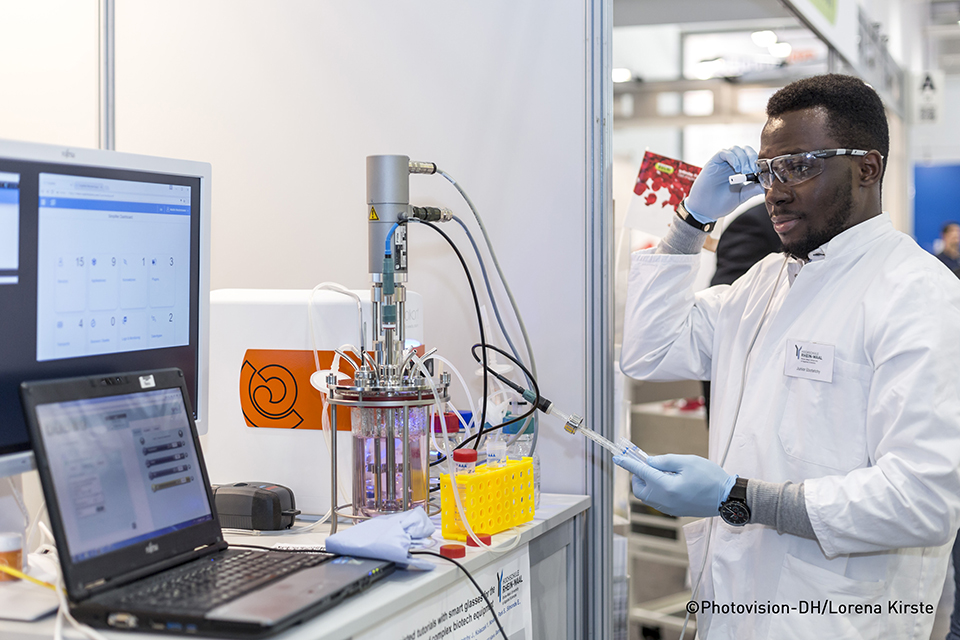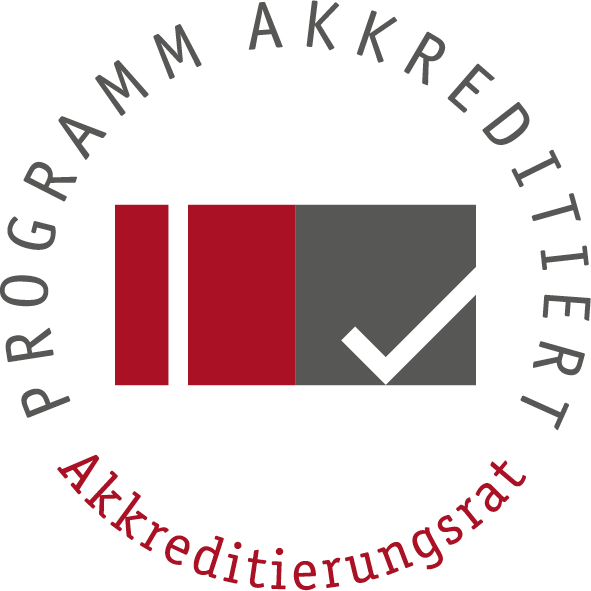Bioengineering*
 Bridging the gap between the natural sciences and engineering
Bridging the gap between the natural sciences and engineering
Bioengineering is an interdisciplinary field where new materials and technologies with a wide variety of applications are developed with the help of both the natural sciences and engineering. Historical examples of early biotechnologies include cheese, wine and bread. Modern examples, however, involve engineering at the molecular-biological level to produce substances used in detergents and cosmetics, active pharmaceutical ingredients and medicines, raw chemical materials for industrial manufacturing, biofuels and even new varieties of plant species.
Bioengineering B.Sc. has a very pronounced focus in the natural sciences. The curriculum introduces a tight intermeshing of biology and chemistry with engineering and technology from the first semester onwards. Your studies will focus on the three main areas, or colours, of biotechnology: health and medicine (red), agriculture (green) and industry (white). Through your choice of electives, you can also add additional emphasis in plant biotechnology and industrial biotechnology. The broad scope of your studies is complemented by small group work and modern laboratories for teaching and research. Refer to the course schedule for this degree programme for a breakdown of topics you will study.
Bioengineering B.Sc. is taught in English and began in winter semester 2012-2013 in Kleve. It has since achieved international recognition, particularly among students: over 60 countries are represented by the students currently pursuing their degree in this programme.
Career paths and skills
Bioengineering B.Sc. prepares graduates for a variety of career paths in different sectors within the chemical, pharmaceutical or biotechnological industries, but also for careers in research as well. Bioengineers are typically found in government agencies, agrotechnology, the food industry, the environmental industry or in waste management. Depending on your branch and specialisation, you can look forward to many interesting roles and activities: managing industrial production processes, contributing to R&D of new chemical production processes, or performing analyses and evaluating the findings.
Admission requirements
- Secondary school qualifications sufficient for admission to a German institute of higher education (university entrance qualification)
- English level B2 (with internationally recognised certificate)
- Completion of an 8-week internship. Note: this is not required for initial admission, but must be completed by the 4th semester in order to continue the second half of your studies.
Detailed study information can be found in this degree programme’s examination regulations and under Admission Requirements.
Application process and deadlines
Please visit Application and Admission for information about the application process. Applications are only accepted online. The annual application deadline for the winter semester is usually 15 July.
* The degree programmes offered are suitable for part-time study in accordance with Section 62a (2) HG NRW.
Quicklinks
Information
Place of study
Campus Kleve
Start date
Winter semester
Language
English
Duration of study
7 semesters of full-time study
Study model
Full-time studies
Degree awarded
Bachelor of Science
Internship
Mandatory 8-week preparatory internship/work placement. This must be completed no later than the 4th semester enrolment deadline.
Restricted admission
Yes
Student Advisory Service
Phone: +49 2821 - 806 73 - 360
E-mail: Student Advisory Service
Course-specific Advise
heads of study programme
Prof. Dr. Joachim Fensterle
Phone: +49 (2821) 806 73 - 219
E-mail: Joachim Fensterle
Prof. Dr. Björn Neu
Phone: +49 (2821) 806 73 - 247
E-mail: Björn Neu

